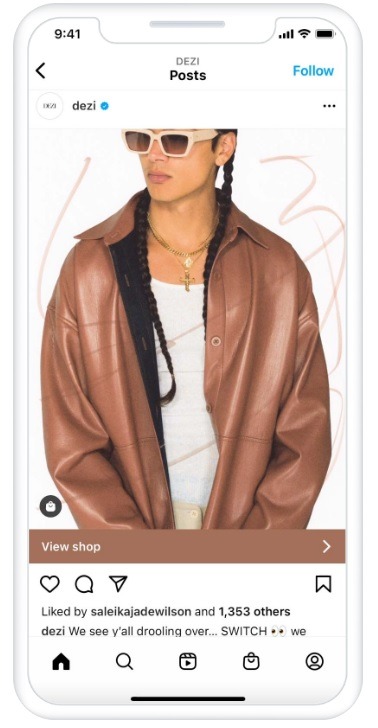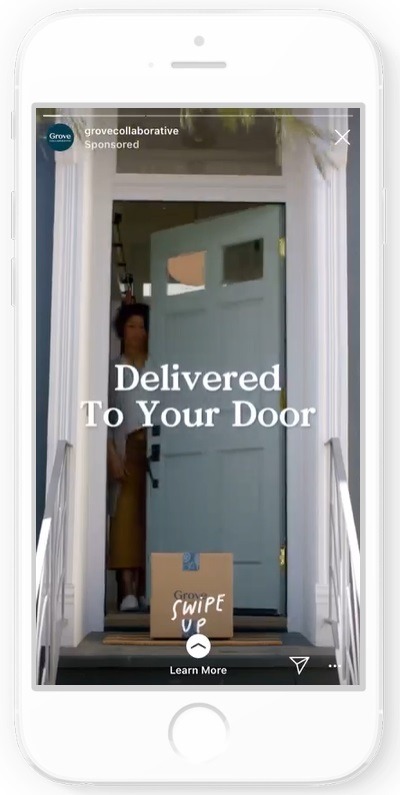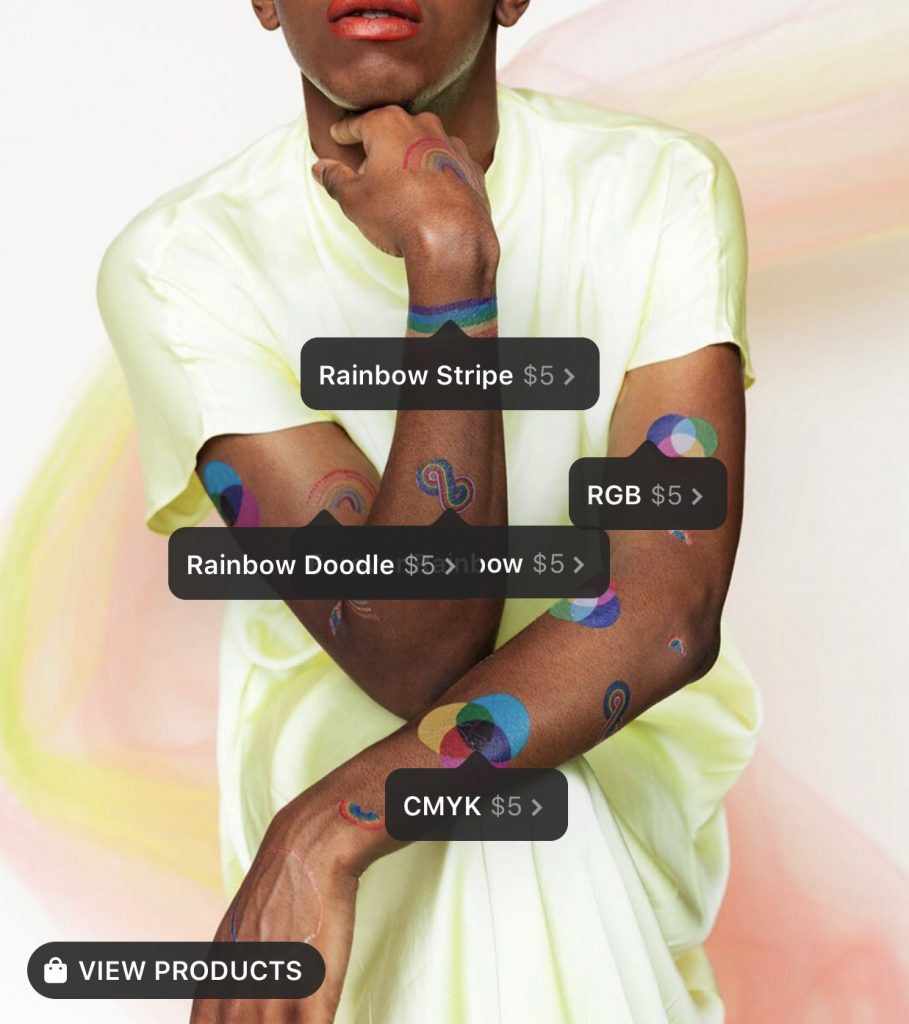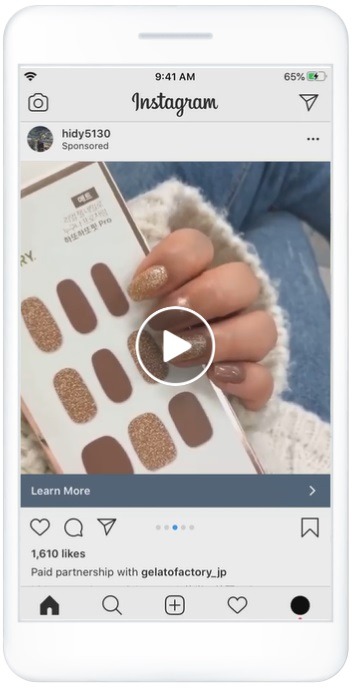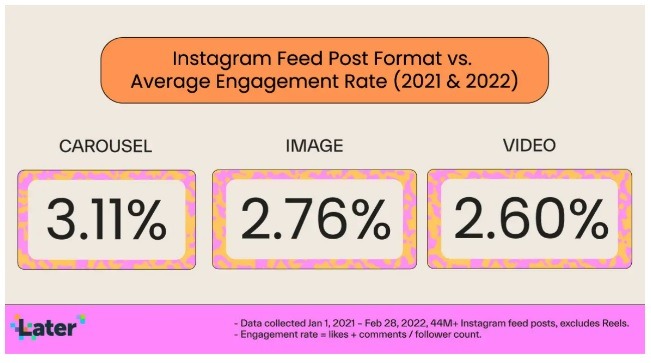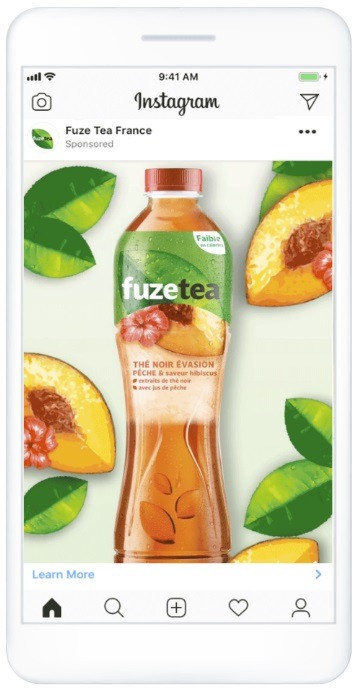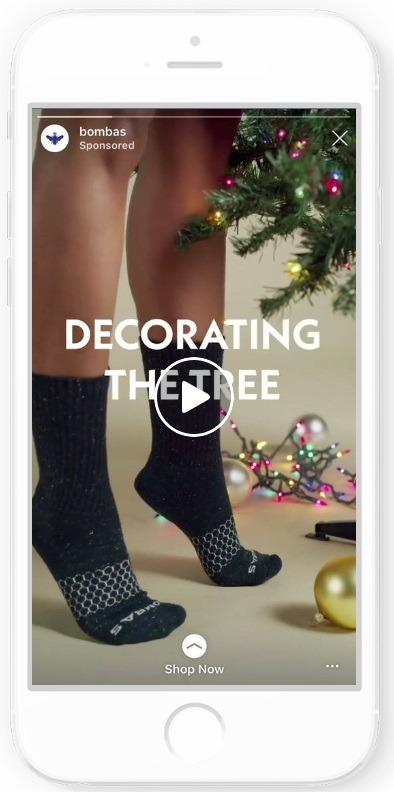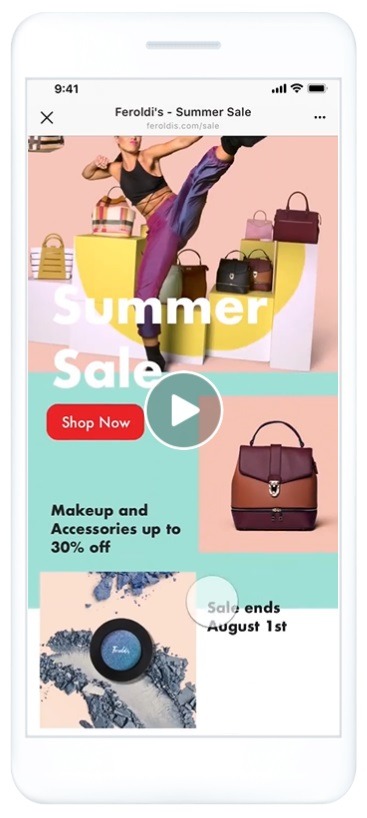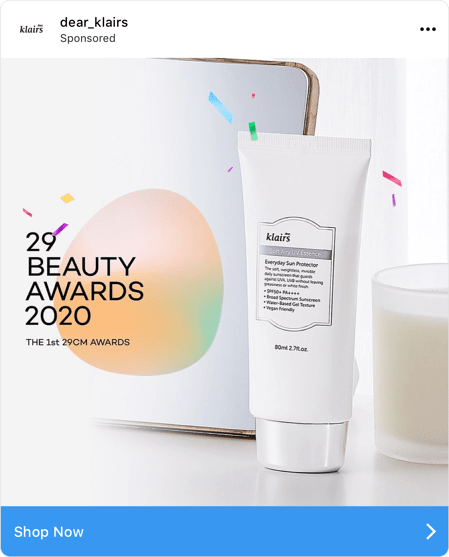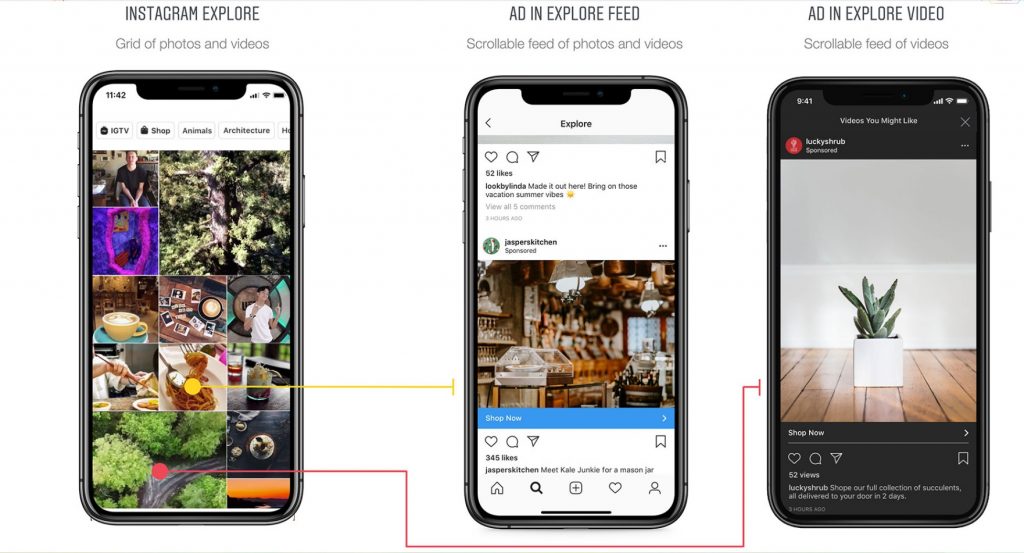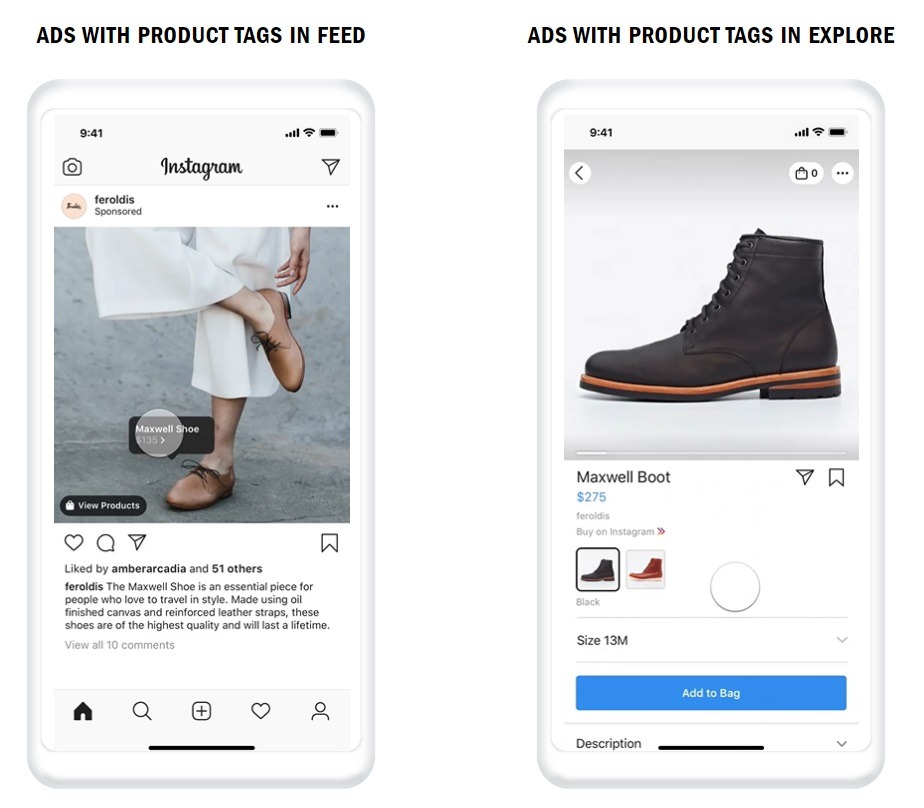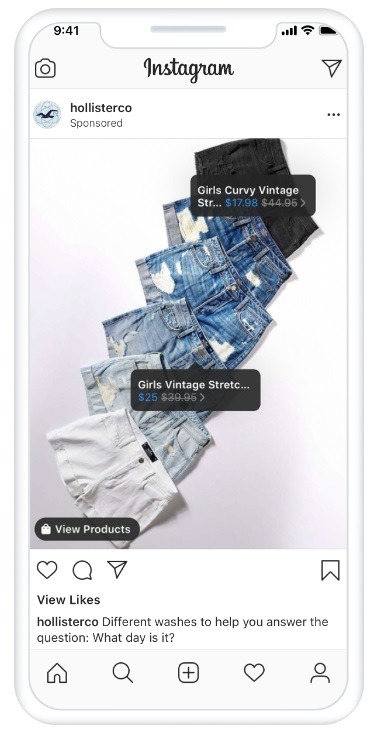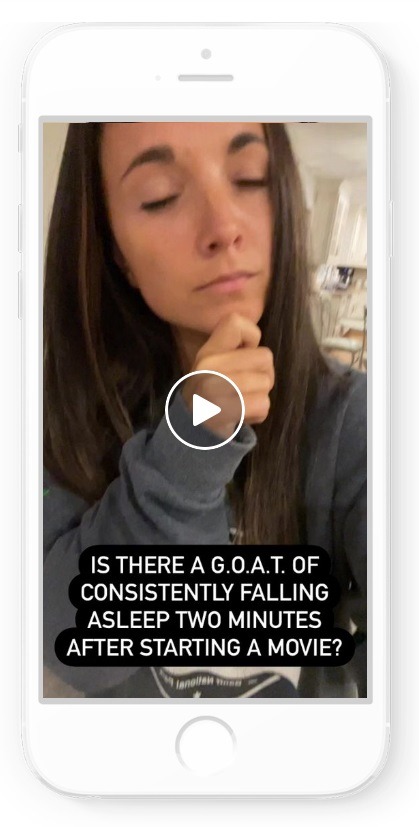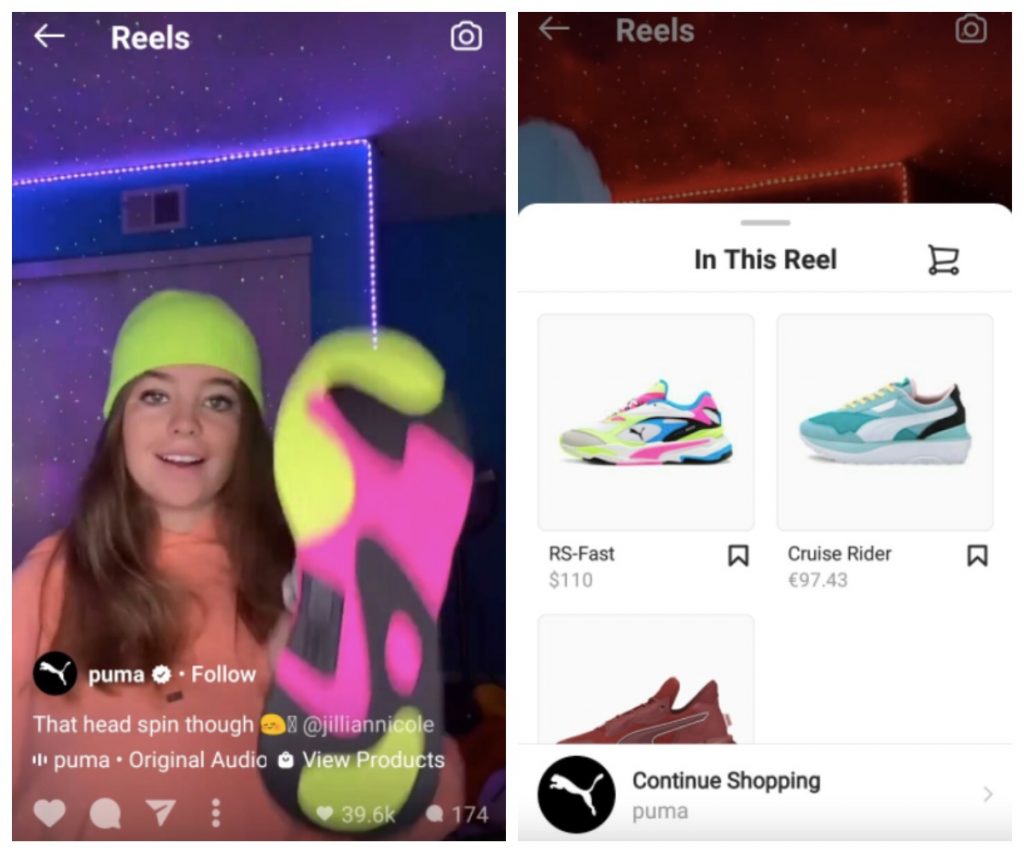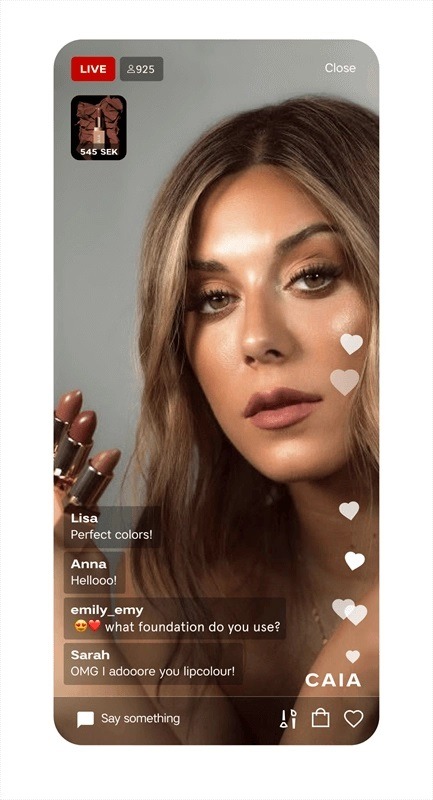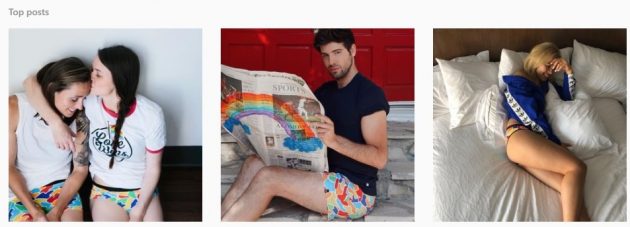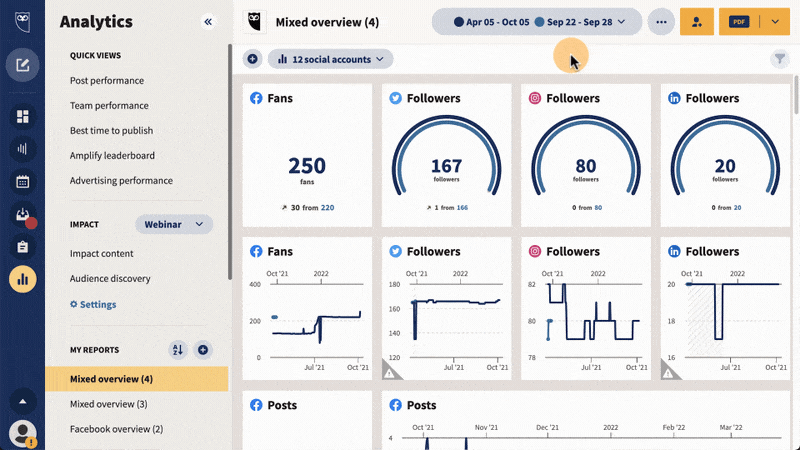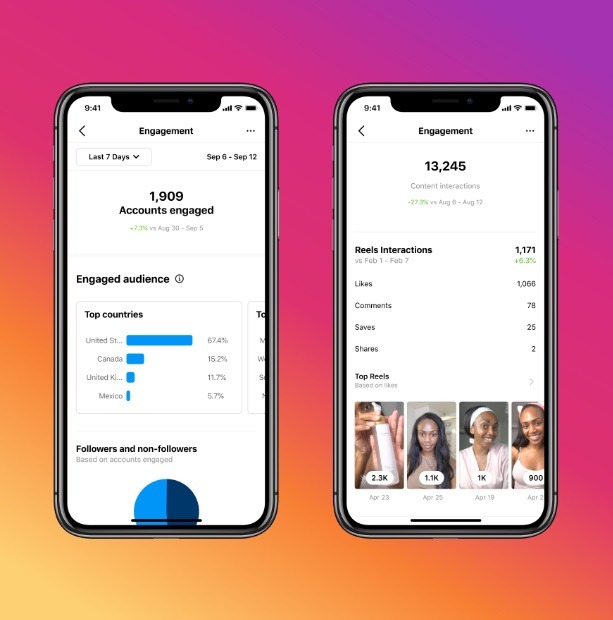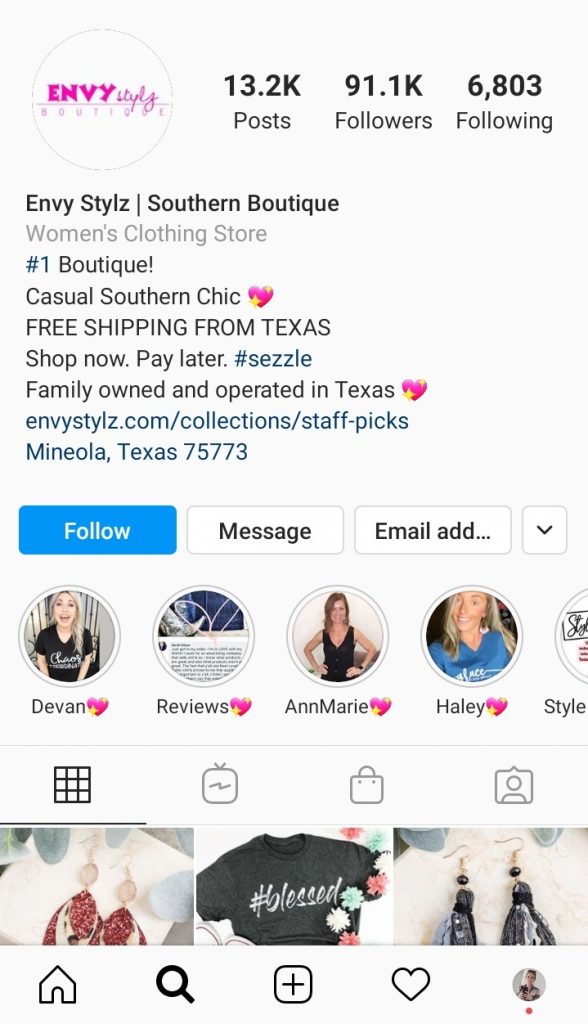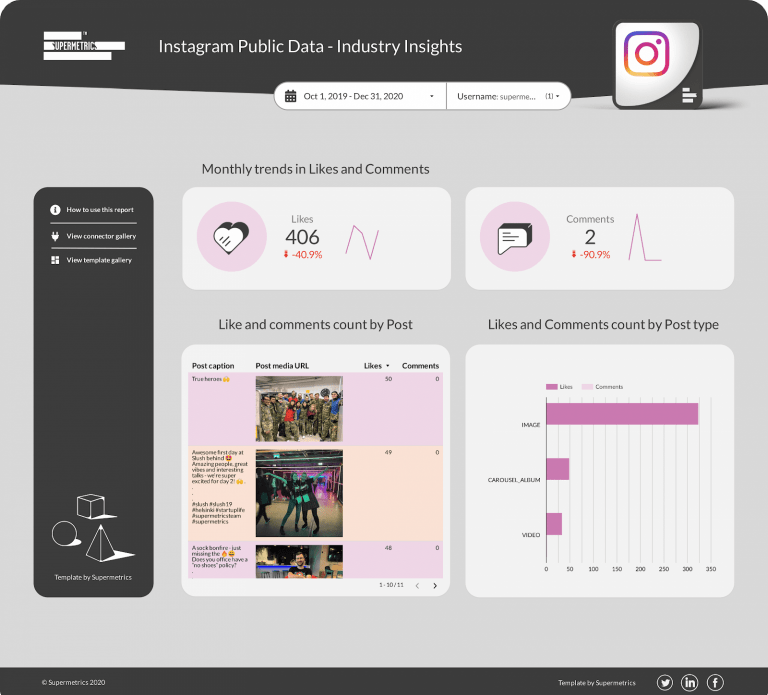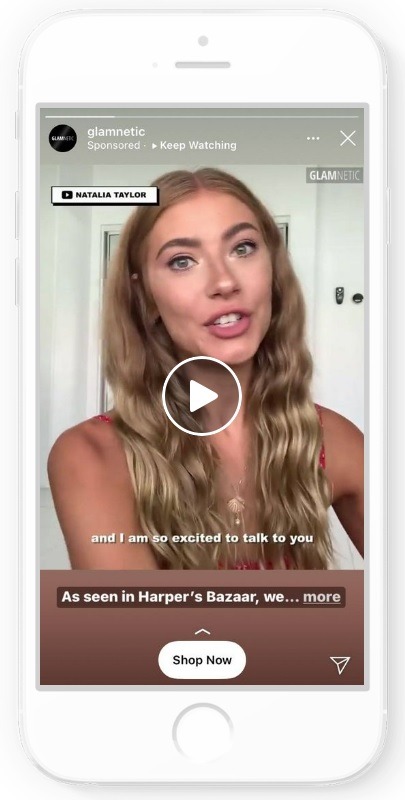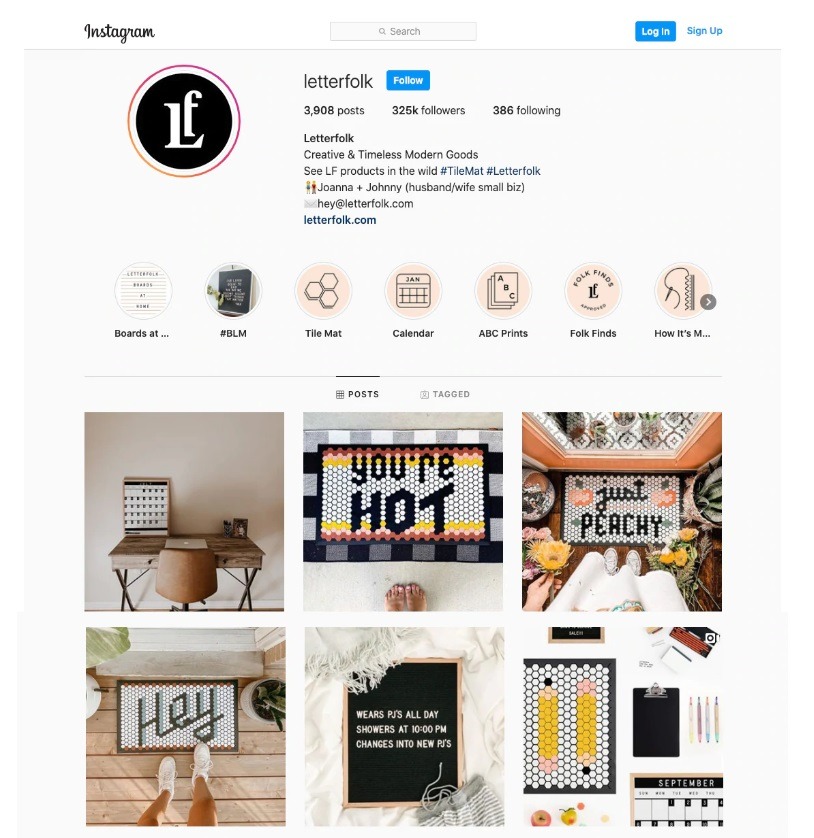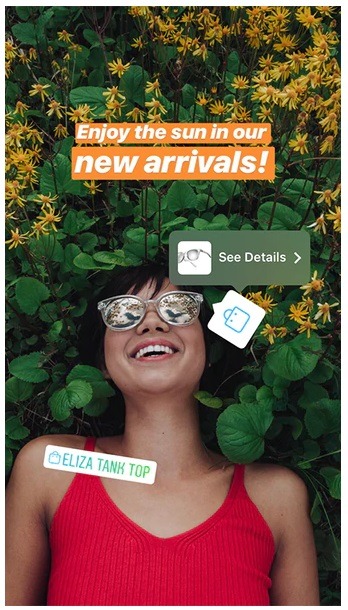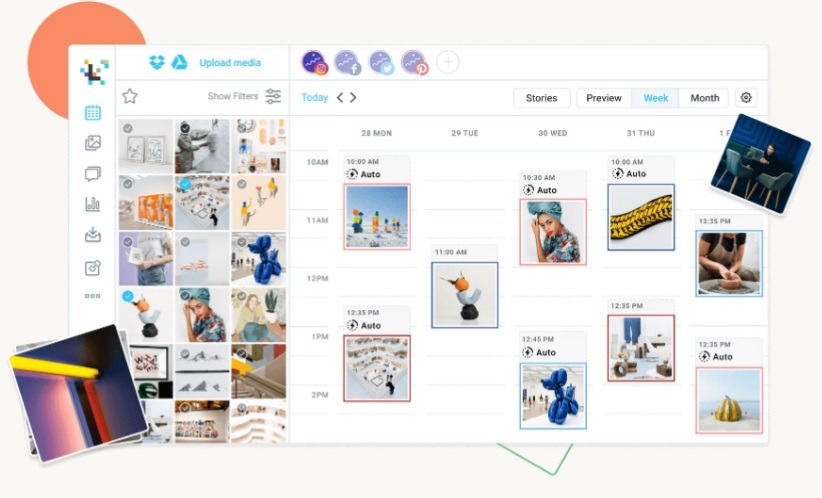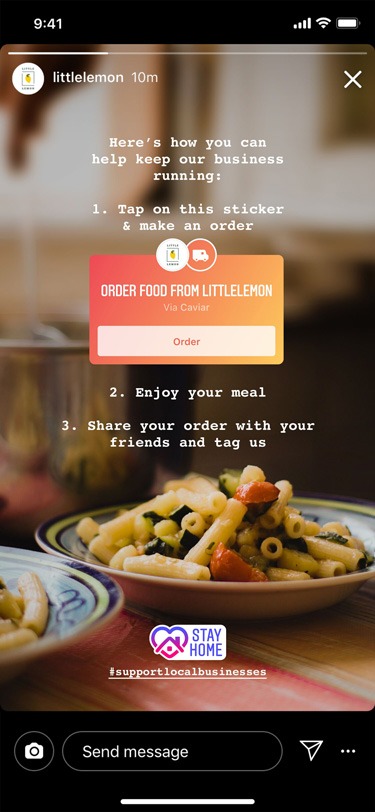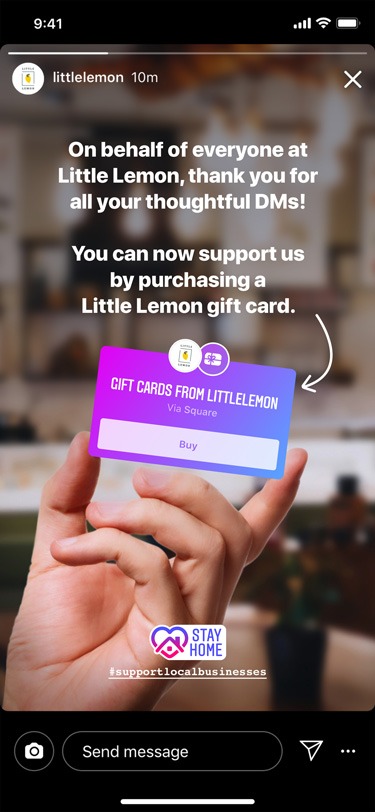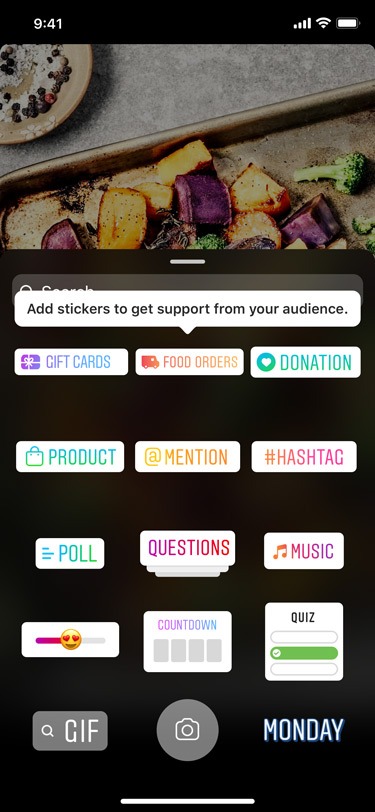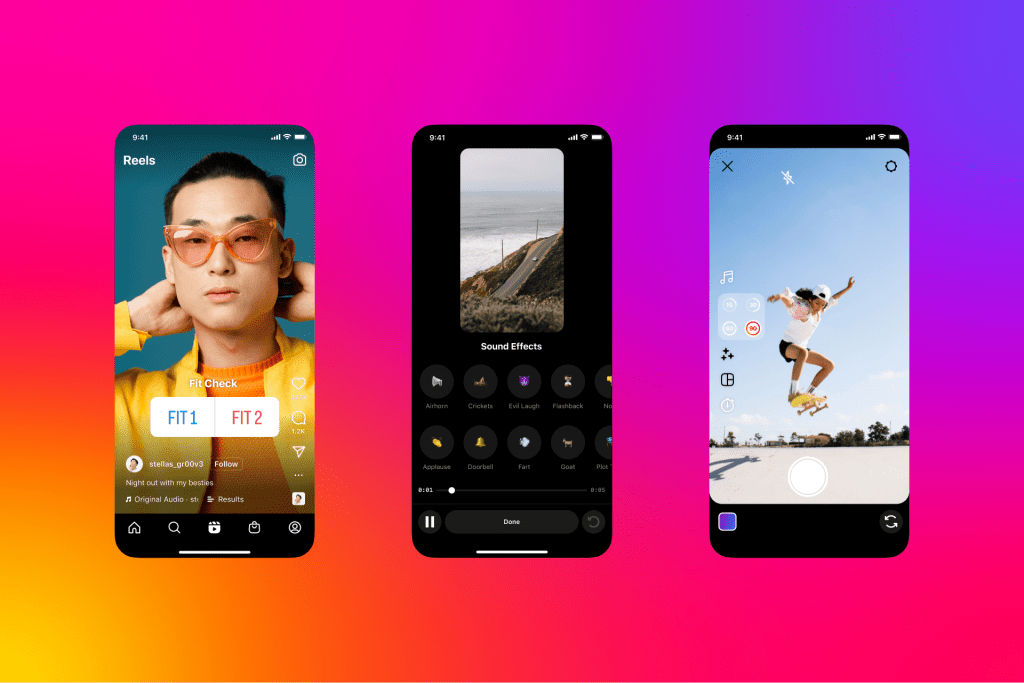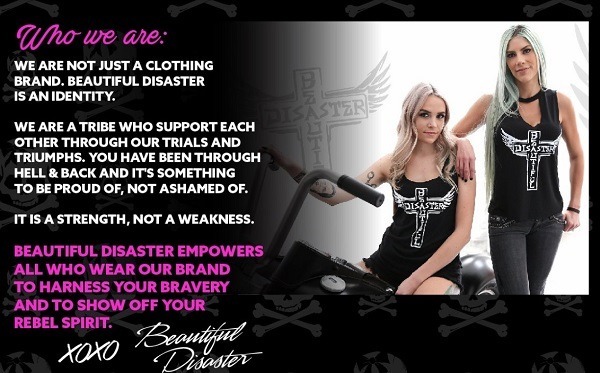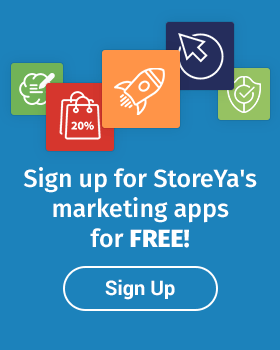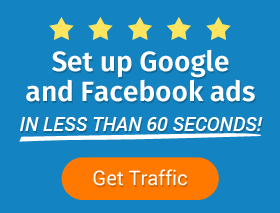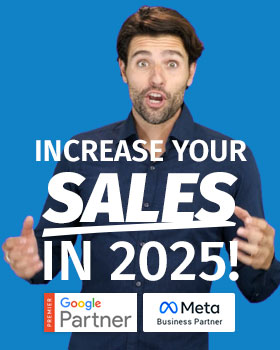There is no doubt; Instagram marketing is a powerful addition to almost every eCommerce strategy. And with an average engagement rate of 0.67%, it’s only growing.
The trick is building a high-performing, well-optimized Instagram marketing strategy centered around the best possible ROAS for your store brand. This guide to winning at Instagram shows you how to do just that. We will cover:
- Why Market on Instagram?
- The Power and Benefits of Instagram Marketing
- Best Types of Instagram Ads and Posts
- How to Build an Instagram Marketing Strategy the Right Way
- Five Instagram eCommerce Strategies, Hacks, and Best Practices to Drive Business Growth and Engagement
Let’s jump in!
Why Market on Instagram?
With around one billion active users, 150 million of which are in the United States alone, there is no denying that Instagram has a far reach. And with strong reach comes a lot of brand engagement. Take a look at some top IG user stats from leading Instagram marketing reports and studies:
Instagram Marketing User Stats
And what do these digital marketing stats spell out for eCommerce marketers?
Instagram marketing allows online retailers to widen their reach in niche-specific segments, giving them access and reach to high-intent potential shoppers. And when combined with the right Instagram ads and shopping? Sales! Aise, for example, increased their conversion rates by as much as 30% by combining product tags with the power of Instagram marketing.
Ultimately, no online store marketing strategy is complete without Instagram. And the payoff? More sales for less spend — when done correctly.
Pro Tip: Combine Instagram marketing with marketing automation to boost ROAS even further. By incorporating ad automation tools such as Traffic Booster, you can optimize your Instagram ads in real-time to ensure you always reach the right audience at the right time for the right spend. You can read more about eCommerce automation tools here.
The Power and Benefits of Instagram Marketing
How does Instagram marketing benefit your brand? It helps eCommerce brands:
- Build brand awareness and equity
- Increase store traffic
- Provide additional data and insights
- Boost UGC (user-generated content) collections
- Drive conversions
Let’s take a closer look at each, diving into vital Instagram marketing stats and/or strategy examples.
Instagram Marketing Builds Brand Awareness and Equity
When you take the potential reach and the visual (image and video) design of Instagram, you get brand awareness on steroids. Why? Because when you factor in the engagement potential, Instagram gives you the chance to boost equity while building awareness and trust.
Dezi is a brand that proves just how powerful this is. They were able to sell 3,000 pairs of sunglasses exclusively on Instagram within the first 48 hours of their product launch, 94% of which were first-time shoppers.
How?
By combining the influential power of their founder and CEO, Desi Perkins, with awareness targeting ads, the company was able to amplify promotion and build new connections with her loyal fanbase while establishing brand equity in a very short period of time.
Instagram Marketing Increases Store Traffic
It’s not a question of whether online retailers can drive traffic with Instagram. It’s a matter of quantity and quality of the traffic. The right Instagram marketing strategy can drive clicks to your store.
According to marketing and traffic studies, more traffic is driven from Facebook (and with it, Instagram) than most other social media networks.
The secret is using the right Instagram ad type. Grove Collaborative, for example, saw a 2.1X higher click-through rate using Instagram Stories ads than other placements. Additionally, 37% of their new store customers came from ads in Instagram Stories.
Instagram Marketing Provides Additional Data and Insights
Because of its reach potential and unique Facebook ad targeting, Instagram marketing insights can be very informative.
From results demographics and audience engagement insights to niche-specific trends, Instagram offers valuable native metrics. eCommerce marketers can use this additional data and insights to not only drive Instagram results but boost other important eCommerce ads and strategies.
Here are some ways you can use Instagram marketing data and insights:
- Identify content types/themes/visuals your audience is interested or disinterested in for content marketing strategies across other channels.
- Get a breakdown of where impressions are coming from. “Search & Explore,” for example, will give you the keywords Instagram used to search for your content. Keywords that can be used in other digital marketing.
- Pinpoint engagement patterns to see the days and times your specific audience is more likely to engage. This can be used to update or optimize content and ad schedules.
Instagram Marketing Boosts UGC Collection
Instagram is a crucial building block to an online retailer’s UGC collection strategy. Not only does Instagram marketing give you insights into audience preferences, which can be used to boost campaigns, but the platform encourages user engagement.
Leading online fashion brand, Aerie, is no stranger to the potential of UGC campaigns on Instagram. Vowing to stop retouching model photos, they launched a campaign to donate $1 per sale to the National Eating Disorders Association (NEDA). Here is their Instagram ad example:
Here, users were encouraged to share unedited photos of themselves in bathing suits using the hashtag #AerieReal.
Instagram Marketing Drives More Conversions
With the right Instagram marketing strategy, brands can drive more marketing and store conversions.
Bonus Content: eCommerce Conversion Rates per Niche [Benchmarks]
According to Facebook, the online store JustFab used a series of Instagram campaigns to lift conversion by 10–15%. In comparison, Easy Canvas Prints saw a 97% increase in conversion rates when they introduced Instagram marketing.
Additionally, with the launch of Instagram Shopping, stores can now drive even more conversions directly in Instagram content and ads.
[Source: Instagram]
So how do you actually take advantage of these powerful benefits to boost conversions? With a well-optimized Instagram marketing strategy. But first, let’s dig into the best Instagram ad and post types.
Best Types of Instagram Ads and Posts [+ Examples]
The best types of Instagram ads and posts include:
- Carousel Ads and Posts
- Image Ads and Posts
- Video Ads and Posts
- Collection Ads
- Explore Ads
- Shopping Ads and Tags
- Stories Ads and Posts
- Reels Ads and Posts
- Live Shopping
- Instagram Messenger Ads
- Sponsored Posts and Branded Content Ads
Choosing between them will depend on your goals, audience, content strategy, and budget. In other words, defined by your Instagram marketing strategy.
Let’s break them down.
Carousel Ads and Posts
Carousel formatting allows marketers to add up to 10 images or videos in a single ad. It is especially popular in the eCommerce industry, as it allows product advertisers to showcase and sell or display (organically) various products or variants in one ad.
[Source: Instagram Business]
According to a recent study from Later, which analyzed over 44 million Instagram feed posts (excluding Reels), carousel posts have the highest average engagement rate. This is followed by image and then video posts.
Placement: Carousel ads are available on:
- Instagram Stories
- Instagram Feed
Image Ads and Posts
Whether your eye-catching visuals showcase your product or your brand, you can’t have a complete Instagram marketing strategy without images. After all, Instagram was launched on organic image posts.
Additionally, as you can see in the engagement stats above, image ads still offer above-average engagement rates as compared to other formats. However:
Note: If you have noticed a general decline in Instagram feed engagement, you are not alone! The biggest reason for this is the platform’s priority shifting to Reels as a way to deal with TikTok video competition. Now is the time to test Reels for your online store, boost UGC campaigns, and increase investment into creating more authentic content. AKA, storytelling.
Placement: Image ads are available on:
- Instagram Stories
- Instagram Explore
- Instagram Feed
[Source: Facebook Business]
Video Ads and Posts
According to Backlinko, Instagram has seen an 80% increase in the time that users spend watching video content. You only have to look at the success of TikTok ads to see why Instagram is putting their focus on video content. Although Later says (as shown further up) that video feed posts get less engagement than photos, that doesn’t take leading Instagram digital marketing posts into account: Instagram Story and Reels.
For example, online retailer and comfort-focused apparel brand, Bombas, saw a 2.4X higher conversion rate for their holiday campaigns by running video ads in Instagram Stories. Additionally, their campaigns resulted in:
- 46% improvement on ROAS
- 34% decrease in cost per action
[Source: Instagram Business]
Placement: Video ads are available on:
- Instagram Stories
- Instagram Feed
- Instagram Explore
- Instagram Reels
Note: As Instagram focuses on Reels, IGTV ads are no longer supported.
Collection Ads
Available on the Feed and in Stories, collection ads send users to Facebook’s Instant Experiences. Facebook describes Instant Experiences as “a full-screen landing page that drives engagement and nurtures interest and intent.”
[Source: Facebook Business]
There is no denying that collection ads have good potential. However, when combined with the power of influencer marketing and Instagram Shopping, the results can be awesome. Klairs, for instance, combined collection ads with influencer-generated content to drive 1.8X higher ROAS and a 41% increase in new-user reach.
[Source: Tribe]
Placement: Collection ads are available on:
- Instagram Stories
- Instagram Feed
Explore Ads
Instagram Explore offers marketers additional ad formats aimed at reaching niche-specific searchers. According to Instagram, the Explore page attracts over 200 million daily active accounts, with 50% of Instagram accounts using Explore every month.
By leveraging Feed assets, these ads appear in photo and video grids. After clicking, users are sent to scrollable feeds, leading Instagram users to an Explore Video experience.
[Source: Instagram Business]
Note: These ads don’t appear in the Explore grid itself, in the topic channels, or in Instagram Video, Shopping, or Stories destinations.
Placement: Explore ads are available on:
- Instagram Explore page
Instagram Shopping Ads and Tags
According to Instagram, as many as 84% of users want to discover new products on Instagram. Instagram Shopping Ads are specifically designed to help them with that discovery. There are two main types of Instagram Shopping Ads: Ads with product tags and ads with tags and checkout.
[Source: Instagram Business]
When Hollister added Shopping campaigns combined with lookalike audiences to test results, according to Instagram, they were able to compare running ads with product tags that targeted Shopping lookalike audiences to their “business as usual” prospecting audiences.
The results? This Instagram marketing campaign brought them a whopping 90% increase in traffic, 32% higher CTRs, and 40% lower CPCs.
Placement: Instagram Shopping Ads are available on:
- Instagram Feed
- Instagram Explore
Stories Ads and Posts
Well over 500 million Instagram users engage with Stories daily. When you add that to the fact that over 58% of people become more interested in a product after seeing it in Stories, there is no doubt that Stories organic posts and ads are a must for any Instagram marketing strategy.
The trick to creating a winning story ad is to combine them with other Instagram marketing elements to build a well-rounded strategy. Plant-based product line Silk, for example, used immersive and interactive ads in their campaigns to drive awareness of Silk Oatmilk.
[Source: Instagram Business]
Harnessing the power of AR (Augmented Reality) and Instagram Feed and Stories ads, they saw a 9.2-point lift in ad recall for the cell that included interactive Augmented Reality ads.
Placement: Stories ads are available on:
- Instagram Stories
Reels Ads and Posts
Instagram Reels are Facebook’s answer to TikTok and include short-form, vertical videos that are up to 60 seconds long. Since Reels launched just a year ago, big brands have seen huge engagement jumps. Instagram experts Later saw their engagement grow by 280%.
Unlike other Instagram content at your disposal, Reels are populated from all Instagram accounts, not just accounts users choose to follow. This allows marketers to use Reels to widen their reach even further.
Note: Instagram is busy testing a TikTok-like full-screen feed designed to create an instantly immersive experience to “bring video more front and center.” You can read more about the announcement here.
These organic posts and ads can be even more powerful when you combine them with product tags, a feature enabled at the end of 2021.
[Source: Ecwid]
Newbie Tip: Not sure how to get started with Reels? You can follow these Later tips to create your first brand Reel:
- Brainstorm and plan your Reels concept
- Create reels from the Reels tab, Instagram home screen, or the Instagram Stories camera
- Add AR effects and/or additional text
- Share your Reel
Live Shopping
By 2024, the livestream market will be worth an estimated $35 billion in the US alone. The newest member of the streaming niche is live shopping, which can be otherwise known as live Commerce. When you combine that with the fact that 44% of people use Instagram to shop weekly, live shopping is becoming a popular Instagram marketing tool.
Bonus Content: The Beginner’s Guide to Live Commerce
CAIA Cosmetics, for instance, has been having massive success with Instagram Live since as far back as 2019.
[Source: Drip]
Instagram Live Shopping can be used to feature usage tutorials, sell products, feature new merchandise, host brand/product Q&A, collaborate with creators to drive more video reach, and much more.
Newbie Tip: To use Instagram Live Shopping, you need to set up a Facebook Shop (Instagram Shopping), as this is where Live pulls product information from.
[Source: Influencer Marketing Hub]
Instagram Messenger Ads
No list of Instagram ad types would be complete without mentioning Facebook Messenger Ads. With Facebook’s integration of Instagram DMs and Messenger, brands can also apply Messenger marketing to Instagram.
[Source: Instagram]
Sponsored Posts and Branded Content Ads
Lastly, let’s talk about Instagram Sponsored posts. Now known as Paid Instagram Partnerships, these are influencer posts that can be boosted with PPC campaigns.
Instagram influencer campaigns can be compelling in terms of brand recognition, trust-building, and awareness. MeUndies’ “Celebrate Yourself” Awareness campaign, for example, resulted in reaching just under 5 million Instagram followers, with an engagement rate of 7.13%.
When combined with Branded Content ads and Facebook retargeting campaigns, brands can broaden influencer reach much further and boost conversions.
Placement: Branded Content ads are available on:
- Instagram Feed
- Instagram Stories
- Instagram Explore
How to Build an Instagram Marketing Strategy the Right Way
Now comes the fun part: Driving Results with Instagram Marketing.
How?
By building a winning Instagram marketing strategy or optimizing an existing one for peak performance. Whether you’re a new, growing store or a large retail manager, the best way to do that is to follow these seven expert steps:
Let’s take a closer look.
Step #1: Redefine Your Instagram Marketing Goals
The first step in optimizing any marketing strategy is to review and reassess your business goals regularly. Yes, we want to sell products, but it’s essential to dig deeper into that by redefining your KPIs. Redefining your Instagram goals will ensure you can better:
- Align Instagram activity with your store’s overall marketing strategy
- Improve ROAS
- Manage your Instagram advertising budgets
Is your brand’s most pressing need launching a new product, reaching new customers (brand awareness), growing your fanbase, pushing product sales, or all of the above? Your needs will set your goals, which in turn should drive your Instagram marketing strategy. Hootsuite suggests marketers consider these four things when redefining goals:
- Attainability. Use historical performance to set attainable goals.
- Relevancy. Set Instagram marketing goals that fit into your bigger brand picture.
- Measurability. Marketing goals should be measurable.
- Specificity. Make marketing goals as precise as possible.
Step #2: Expand and Redefine Audiences
Once you have redefined your goals, you will want to review your target audiences. Your goals should define what you post and when you post it, as well as drive your Instagram PPC and influencer strategies.
Let’s say your Instagram marketing goal for the quarter is to reach new customers. You will want to find similar audiences or research new Instagram niches for which you can create ad campaigns. You can do this by:
- Reviewing your current buyer personas
- Looking to your closest competitors for follow demographics and engagement
- Reviewing growing Instagram trends
- Deep diving into your Instagram analytics
[Source: Hootsuite]
Pro Tip: Instagram insights are vital in improving your marketing and advertising, and they are constantly evolving. For example, their two newest additions, “Accounts Engaged” and “Engaged Audience,” give the total number of accounts that interacted with your Instagram content in a given time period.
[Source: Instagram Business]
The trick is combining platform insights with the best analytics tools. Some top Instagram marketing apps include:
- Content marketing analytics: Hootsuite
- Instagram ads analytics (and management): Traffic Booster
- Hashtag analytics: Keyhole
- Engagement analytics: Later
Step #3: Optimize Your Profile
Your brand’s Instagram bio and account play a key role in attracting shoppers and improving SEO. While your bio should tell potential customers what you offer or stand for, it should also be optimized with your primary keywords and current hashtags to boost traffic.
Bonus Content: How to Optimize Your Instagram for SEO
When it comes to optimizing your account for your shoppers, looks and feel matter. A good example is EnvyStylz, who uses a robust multi-channel strategy, including Instagram, to increase their sales by 470%. Their profile matches their brand tone and look, and their bio speaks directly to their shoppers.
Simply put, your profile is a piece of your Instagram marketing strategy. Here are some tips on optimizing your profile to get you started:
- Keep your bio short but informative
- Include a CTA and a keyword
- Stick to an aesthetic across post content
- Create highlights to showcase the best Stories content
- A/B test bio tweaks to find the best combination
Step #4: Analyze Your Competitors
Another critical part of a high-performing Instagram marketing strategy is competitor analysis. This helps you stay on trends, gauge your performance against industry and/or niche benchmarks, and identify new marketing opportunities.
You can do this by following these two steps:
- Identifying your Instagram competitors by searching “suggested for you” sections, hashtag trends, and accounts
- Reviewing your competitor’s engagement, content performance, and follower data
You can also use tools like Supermetrics to sort Instagram data. You can access a template here.
[Source: Supermetrics]
Step #5: Rethink Your Instagram Content Strategy
A big part of your marketing plan is your content strategy. Not just your Instagram ads, but your organic posts as well. Yes, organic content marketing and PPC strategies may be run separately, but they and your relevant teams should be perfectly in sync.
While your organic content helps you attract new shoppers and followers while establishing a brand identity, your ads expand reach and sell products.
Tips to Boost Instagram Organic Post Reach
- Go back to basics with scheduling. Look to your analytics to point to the best time to post for engagement.
- Find ways to create unique, authentic content
- Vary your content and make sure you include photos, videos, shopping posts, Stories, Reels, and carousel posts
- Upgrade your UGC collection strategies
- Speak to and engage with your audience regularly
Just like an organic content marketing strategy, when it comes to Instagram ads, you want to combine a variety of ads to attract and move new potential customers through your eCommerce sales funnel. And you don’t have to be a mega online retailer to dominate with a content combination.
Let’s take a look at one example from Glamnetic. Their success came from combining DIY videos for Facebook and Instagram with social media influencer marketing, and continuously testing and tweaking their Instagram content and marketing to maintain consistent growth.
Some of the content formats Ann McFerran, co-founder and CEO of Glamnetic, used include: Direct Messaging (DM), Instagram influencer marketing, and uniquely designed, brand-specific augmented reality (AR) filters.
And the results? They were able to double their revenue, month over month. Specific growth stats include:
- 10.5% lift in purchase conversions
- 1.5X lift in ROAS
- 6.4X lift in action intent
Bonus Content: 6 Tips to Create a Scalable Content Marketing Campaign
Step #6: Grow Follower Base and Turn Them into Customers
Another important part of your Instagram marketing strategy is follower building. The larger your follower base is, the more chances you have to engage your designed target audience and turn them into shoppers, and then loyal customers.
How? The trick is quality over quantity. You want engaged followers that you can retarget. Here are some tips to get you started:
- Dive into new content types (Such as Reels)
- Boost followers with loyalty programs
- Avoid fake followers
- Be constant with your organic content
- Post content your followers want
- Encourage UGC, brand partnering, and brand advocates
- Go niche with your hashtagging
- Engage back with comments
- Invest in influencer marketing
- Test Instagram Live Shopping
- Cross-promote content
- Optimize your Instagram account
[Source: Shopify]
Instagram Management Tip: Followers
A key part of Instagram management is being able to effectively manage your Instagram followers. This becomes far more important as your brand account grows. Here are some Instagram management tips to get you started:
- Set up saved responses to ensure all engagement stays on brand
- Be hyper-responsive to IG DMs and comments
- Set yourself up to counteract bots and spam accounts
- Allocate account blocking or restricting tasks to one dedicated person
- Keep track of niche influencers and brand advocates
Step #7: Boost Results with Optimized Ads
Lastly, let’s talk about Instagram ads. You can optimize your Instagram profile as much as you want, but without high-performing campaigns, no one will see it — or your products. Ultimately, you need a variety of campaigns that target all buying stages. Including:
- Awareness
- Interest
- Desire
- Action
- Loyalty
“The Original Light Beer,” Miller Lite, for example, used Stories ads as part of their Instagram marketing to drive awareness of the branded products they sell in their merchandise shop. They then combined Dynamic ads for broad audiences and influencer campaigns packaged as video and photo ads on Stories and in Feed to increase add-to-cart conversions by 2.5X.
However, it’s not just Instagram post variety to consider. Instagram ads should work seamlessly with your other PPC channels and campaigns to ensure that your marketing strategy works in unison.
You can do this manually, or automatically by harnessing the power of AI so that you are triggering the right ads to the right audience, at the right time, to increase conversion potential.
Automate Instagram Marketing
Now for some expert hacks to optimize your Instagram marketing strategy.
5 Instagram eCommerce Strategies, Hacks, and Best Practices to Drive Business Growth and Engagement
Now that you have the foundation of a winning Instagram marketing strategy, here are five hacks you can use to boost performance.
1. Go All In with Authenticity
We know there is a lot of competition out there, and it’s vital to be able to make scroll-stopping Instagram content.
The truth is that the only way you can stand out is to be as authentic to your store brand as possible. Why? Because being authentic doesn’t just help you build trust; it also ensures that you are creating original content. You don’t want to focus on white-background product shots for your content marketing. Instead, you want to use human, fun, in-the-moment style and/or storytelling to promote your product and brand.
Ultimately, you want to talk to your audience with every piece of Instagram marketing content in a language that they understand while being able to outshine content in your user’s feeds. To get you started, here are some Instagram post ideas to help you focus your marketing on authenticity:
- Live content
- Product photos and videos that convey a feeling
- Co-branding
- Instagram contests/giveaways
- Reel product Q&As and brand vlogs
- Behind-the-scenes content and selfies, and other “sneak peek” Instagram posts
- User-generated content highlights
- Community project and brand event announcements
- Partnerships with unique influencers
- Interactive content
- Product and niche tutorial videos
- Lifestyle product photos and videos (products in action) with tags
[Source: Shopify]
2. Automate, Automate, Automate
As your brand and Instagram marketing strategy grows, you will need to automate as much as possible to optimize in real-time. This is not only vital to compete, but a must in terms of marketing team productivity.
There are a variety of ways you can automate your Instagram marketing with the help of built-in features and third-party automation tools, apps, and services.
Top Instagram Automation Tools
- Instagram account growth automation: Kicksta is an organic growth tool that uses advanced AI promising no bots, fake followers, or spam.
- Instagram ad automation: Traffic Booster is a PPC automation tool that optimizes Instagram, Facebook, and Google Ads for eCommerce to peak ROAS performance. You can find out more here.
- Instagram engagement automation: Instavast offers a full suite of Instagram marketing tools to help automate brand engagement, such as liking and commenting.
- Instagram content marketing automation: Tools like Jarvee (a Windows-based scheduling tool), Iconosquare, and Later enable brands to automate Instagram brand content scheduling. Later includes a visual planner, Stories scheduler, advanced analytics, Instagram hashtag suggestions, and more.
3. Test Stickers and Buttons in Stories
Stories and Reel stickers aren’t just a way to make your brand content more interactive to push content engagement. When used strategically, they can also be used to drive business sales. For instance, Next Games marketers saw 40% more app installs when they added polling stickers to their Stories ads for a new game launch.
During the pandemic, Instagram launched its Food Orders and Gift Card stickers and button features as a way for shoppers and customers to support businesses during the lockdown. They have now become a popular choice for eCommerce Instagram marketing.
[Source: Instagram Business]
Here are some top Reels Stories stickers and buttons and how you can use them to boost your Instagram marketing:
- Shoppable tags: Shoppable tag stickers take users to product information pages and are a must for eCommerce marketing.
- Countdown stickers: Countdown stickers are a great way to engage followers and customers before a product or promotion launch.
- Location stickers: Use location stickers to highlight location-specific launches and sales.
- Mention stickers: Drive UGC, customer engagement, and co-branding marketing by using Instagram mention stickers in Stories content.
- Hashtag stickers: Instagram Hashtag stickers help you reach new potential customers while reinforcing brand messaging.
- Quiz stickers: Quiz stickers are another interactive Stories or Reels feature that helps brands engage directly with customers and potential shoppers.
- Emoji slider: Available on Stories and Reels, the emoji slider enables users to engage with the content by expressing how it makes them feel.
- Poll stickers: Add poll stickers to Stories ads and posts as well as Reels to make marketing more interactive.
[Source: Instagram Creators]
4. Up Your UGC Game
To be successful with any social media marketing, brands should be focused on providing value, not selling products. This is something GaryVee covers a lot in his video content and marketing seminars and believes “99%” of people are eliminated from social success because they have selfish creative content.”
So how do you implement that ethos in your Instagram marketing strategy? The trick is creating content that is helpful, not pushy. You want to show them how a product answers a problem they have, not tell them to buy it.
To create high-value, quality Instagram content, brands should:
- Tell a story or solve a problem
- Have a deep understanding of your audience
- Continuously track and measure performance
- Create a content marketing strategy that includes a wide range of content types
- Engage back with users, followers, and customers
A brand that is excellent at all of the above is the multimillion-dollar clothing brand Beautiful Disaster. In fact, their whole brand is built around providing value to their customers through their community. They do this by leveraging all their marketing platforms to be able to create valuable, meaningful content that people can connect with.
Tip: How to Use UGC on Instagram
- Resharing
- Sharing reviews or testimonials
- Use UGC posts with Facebook and Instagram ads
- Partner with a cause or NGO
5. Stop Making Selfish Content
To be successful with any social media marketing, brands should be focused on providing value, not selling products. This is something GaryVee covers a lot in his video content and marketing seminars and believes “99%” of people are eliminated from social success because they have selfish creative content.”
So how do you implement that ethos in your Instagram marketing strategy? The trick is creating content that is helpful, not pushy. You want to show them how a product answers a problem they have, not tell them to buy it.
To create high-value, quality Instagram content, brands should:
- Tell a story or solve a problem
- Have a deep understanding of your audience
- Continuously track and measure performance
- Create a content marketing strategy that includes a wide range of content types
- Engage back with users, followers, and customers
A brand that is excellent at all of the above is the multimillion-dollar clothing brand Beautiful Disaster. In fact, their whole brand is built around providing value to their customers through their community. They do this by leveraging all their marketing platforms to be able to create valuable, meaningful content that people can connect with.
You can read more about how this brand uses authentic, real connections to grow their eCommerce brand in our success story interview, Exclusive Look at Multimillion-Dollar Clothing Brand’s Success Secrets to Drive $5 Million in Annual Revenue.
Final Thoughts: Tailor Your Instagram Marketing to Your Specific Store, Product, and Market
The biggest part of creating a winning Instagram marketing strategy for your online store is ensuring it is built, tweaked, and optimized for your specific brand. This is vital if you want to be able to drive results and boost ROAS with Instagram.
Whether you go all-in with Reels, or decide on a carousel over a video ad is going to be determined by your specific brand. Every step of your Instagram content marketing strategy, promotional plan, or live commerce should be tested, tweaked, and tested again until it’s optimized for your market. You can do this by:
- Looking consciously at performance metrics
- Re-evaluating every edit, change, or new content type
- Testing
And then doing it all over again!
Still have Instagram marketing questions or want some help with other social media ads? Post your questions in the comments below!

Nicole is a content writer with over sixteen years experience and flair for storytelling. She runs on a healthy dose of caffeine and enthusiasm. When she's not researching the next content trend or creating business content strategies, she's an avid beachgoer, coffee shop junkie and hangs out on LinkedIn.
Recommended articles
 Facebook Ads for eCommerce: 16 Strategies, Examples & Tips
Facebook Ads for eCommerce: 16 Strategies, Examples & Tips
 How to Build a Winning eCommerce Ads Strategy
How to Build a Winning eCommerce Ads Strategy
 Google Ads for eCommerce: Everything You Need to Know
Google Ads for eCommerce: Everything You Need to Know
 10X Your Traffic with PPC Management Software
10X Your Traffic with PPC Management Software
Comments
Powered by Facebook Comments


